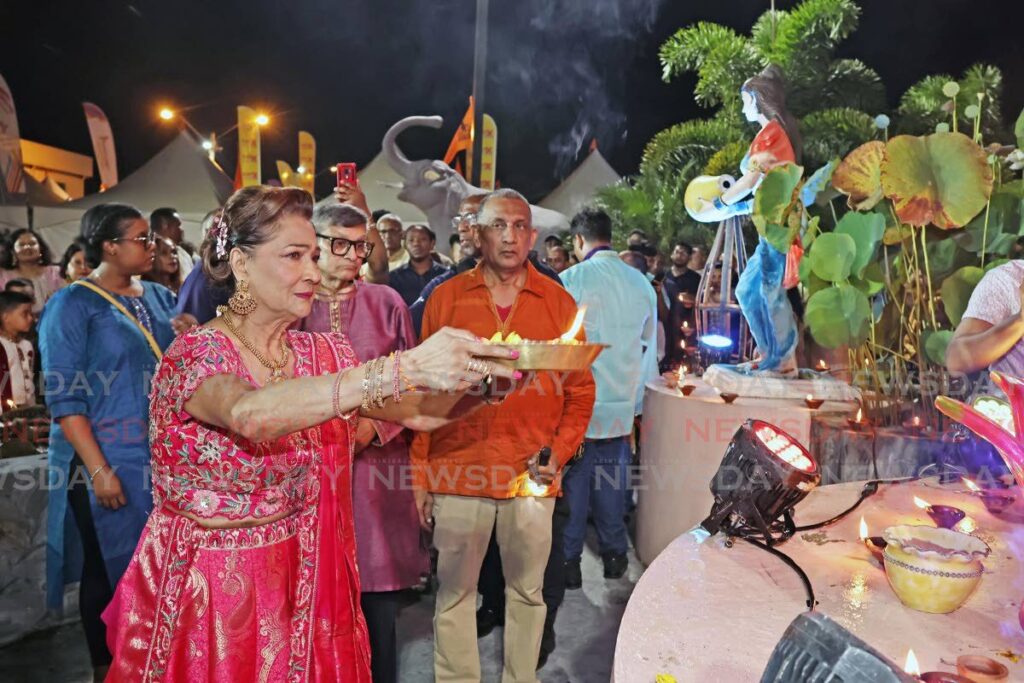Divali and women’s rights
Written by Newsday on October 31, 2024

THE EDITOR: In my previous letter I seemed sceptical about the positive impact the lights of Divali can make on our crime situation, overwhelming as it is.
But, as if in some kind of mystical response to that scepticism, a thought came to me “flush like a full brown rose,” as John Keats would say (Eve of St Agnes), that Divali in its embodiment in the Hindu goddess, Mother Lakshmi, can have a positive effect on our lives, but in a more specific way.
I refer to the contemporary movement for women’s rights as reflected in the feminist movement internationally, extending itself into a kind of “wokeism” in the US as a more aggressive assertion of those rights, and recently in the T1X, again in the US, now championing the cause of women’s rights in sport at a time when transgenderism is a serious threat.
And I would like to suggest that Mother Lakshmi, at the centre of Divali, the symbol of wealth and prosperity, can be an inspiration for such rights.
And the Divine Mother is not alone in this. She is one of hundreds in the Hindu pantheon, such as Goddess Saraswati, representing knowledge and the arts, Goddess Durga as the protector against negativity, and one of the most powerful of them all, Goddess Kali, with the power to vanquish all destructive forces in nature.
It is instructive how the idea of “woman power” as contained in the Hindu texts such as The Puranas and the Mahabharata, inter alia, would have been there for over 6,000 years to inspire women to fight for their rights, for looking at the Hindu goddesses as a collective, they represent every aspect of women’s rights that is at the centre of the feminist movement as we have come to know it.
Some may say that the Hindu goddesses belong to the realm of the divine and outside the reach of the challenges facing women in the real world, and others, schooled in the idea of the divine being one and indivisible, unseen, may frown on the concept of the divine manifesting itself in multiple forms, and in a manner as material and palpable as their varied murtis signify.
It is worthwhile to remember, though, that the statue of the divine Mary is central to the Catholic faith, as much as that of Buddha is to Buddhism. But this is a testy area and I withdraw.
One local Sunday newspaper devoted an entire section to “women’s empowerment” (Sunday Guardian, October 27), and in this letter I would like to add my little piece.
I am suggesting that Divali, seemingly limited in its impact, even as metaphor, on the deep-rooted criminality which threatens to overwhelm us, through the divine Mother Lakshmi, its embodiment, and her associate goddesses, can be an inspiration for the activists in the feminist movement, not only the world over, but more especially for all women, of every creed and race, in this beautiful country of ours.
DR ERROL NARINE BENJAMIN
via e-mail
The post Divali and women’s rights appeared first on Trinidad and Tobago Newsday.




